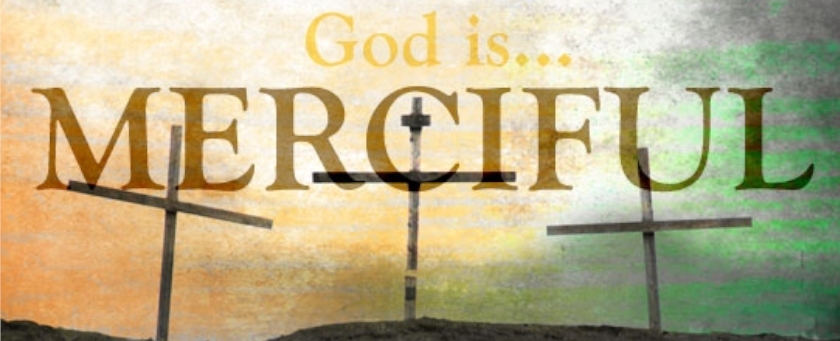Let Those Who Fear the Lord Say, 'His Mercy Endures Forever'
Sunday of Divine Mercy, Year A

Readings:
Acts 2:42-47; Ps. 118; 1 Pt. 1:3-9; Jn. 20:19-31
(Audio recorded live, 16 April 2023)
“Every day they devoted themselves to meeting together in the temple area and to breaking bread in their homes.” Words taken from today’s reading from the Acts of the Apostles. How different would our Church be if even 10% of Catholics devoted themselves to meeting together and breaking bread every day in our parish churches? On this Sunday of Divine Mercy, we are reminded of the outpouring of God’s mercy whenever we gather together. The beauty of the Roman Catholic liturgy is that it is not limited to Sunday alone, but is celebrated daily in churches throughout the world. That means the one sacrifice of Christ, the primary outpouring of God’s mercy and love for us, is celebrated daily. In a sense, the way the early disciples gathered daily to pray has remained constant from the very beginning. But, how often are we availing ourselves to the mercy of God so freely given throughout the week. Certainly it is one thing to say we went to Mass on Sunday, we fulfilled our obligation, we ticked that box, but it is another to say, I desire more. We join our prayer with the psalmist who says, “This is the day the LORD has made; let us be glad and rejoice in it.”
St. Peter highlights the mercy of God that comes to us through the death and resurrection of Christ. He says, “Blessed be the God and Father of our Lord Jesus Christ, who in his great mercy gave us a new birth to a living hope through the resurrection of Jesus Christ from the dead, to an inheritance that is imperishable, undefiled, and unfading, kept in heaven for you who by the power of God are safeguarded through faith, to a salvation that is ready to be revealed in the final time.” There is a lot to unpack from his one statement, but suffice it to say that the Father has shown the baptized a great mercy in that we have been saved by the blood of Christ. This gives us hope for a blessed future of peace and harmony with God and one another, a peace that surpasses understanding, a peace that transcends the toil and suffering of earthly life.
We ought not to discount suffering too quickly, however, because redemption came to us through the passion, death, and resurrection of Christ. Our own suffering, therefore, is also redemptive in as much as we, who have been baptized, are part of the mystical body of Christ. And as St. Paul says, “Now I rejoice in my sufferings for your sake, and in my flesh I am filling up what is lacking in the afflictions of Christ on behalf of his body, which is the church…” (Col. 1:24). And as it says in the Order of Penance, “May the Passion of our Lord Jesus Christ, the intercession of the Blessed Virgin Mary and of all the Saints, whatever good you do and whatever evil you endure, be for you a remedy for sin, an increase of grace, and the reward of eternal life” (See Order of Penance, No. 93, 2022).
In the upper room, when Jesus appeared, he said to his disciples, “Peace be with you.” Then he breathed the Holy Spirit upon them saying, “Receive the Holy Spirit. Whose sins you forgive are forgiven them, and whose sins you retain are retained.” Whenever we celebrate the Order of Penance, we experience the mercy of God, through the redemptive suffering of Christ. He instituted the sacrament of reconciliation because he is God of mercy, even to those like Thomas, who are slow to believe. Jesus did not abandon Thomas because he doubted, rather, he appeared to him again, in the midst of all the others, and invited him to touch his resurrected body, so that he might no longer doubt, but believe.
Jesus is indeed as close to us today as he was to Thomas in the upper room. We also see Jesus in the flesh, whenever we gather around the altar, and we touch Jesus, as Thomas did, whenever we receive Holy Communion. This awesome outpouring of God’s mercy and love for us happens everyday throughout the world. Would that we all be present to him as he is present to us.





Share this post
Twitter
Facebook
Pinterest
Email